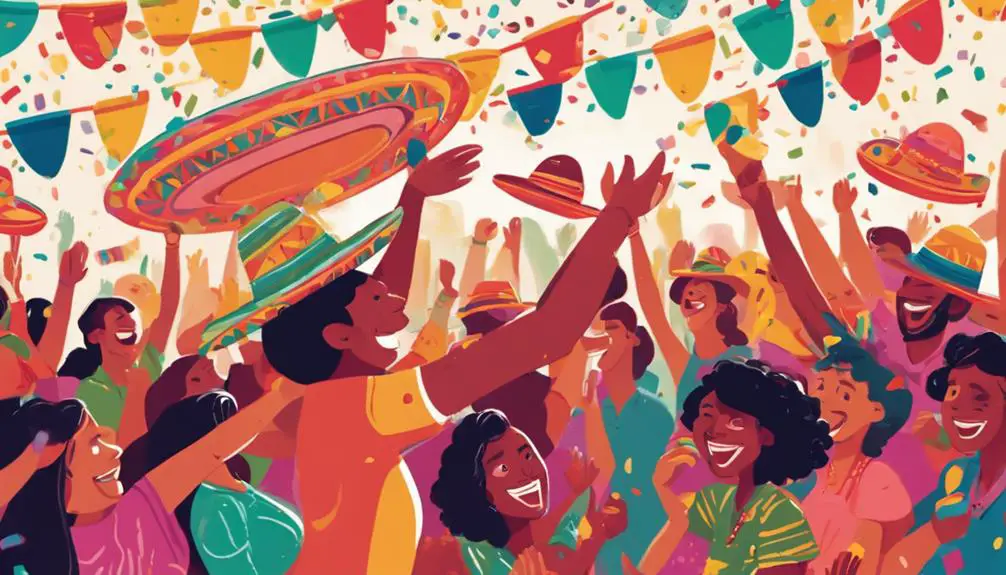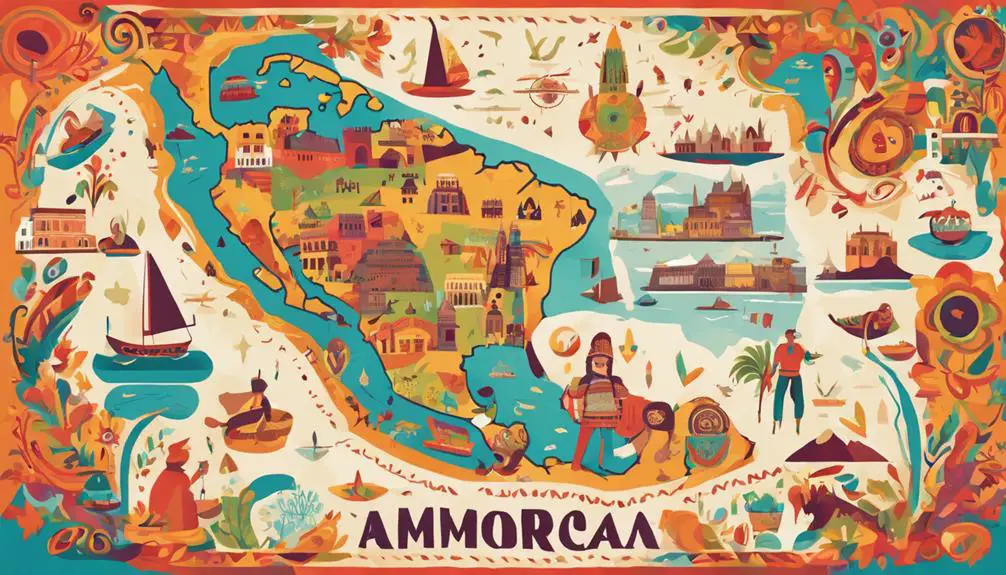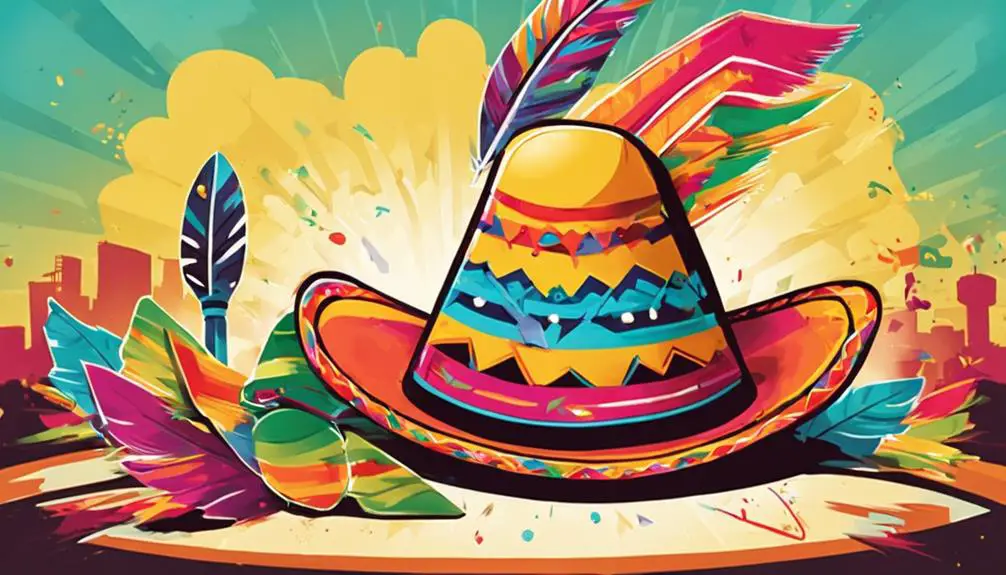You're looking to explore a great impression with a warm and authentic welcome in Spanish slang. For casual greetings, try '!Qué bien que estás de vuelta!' or '!Hombre, cuánto tiempo!' For a more relaxed vibe, use slang expressions like '¿Qué onda?' or '¿Cómo la va?' to reconnect with old friends. In Latin America, opt for '!Bienvenido de vuelta!' or '!Regresaste!' to sound like a native. Want to take it to the next level? Investigate regional twists and colloquial expressions to make your welcome feel like a big hug. Immerse yourself in the world of Spanish slang and discover even more ways to make your greetings unforgettable.
Casual Ways to Say Welcome Back

When returning to a familiar place or reuniting with friends in a Spanish-speaking country, you'll often hear casual expressions that go beyond a simple 'bienvenido' or 'welcome back' in Spanish slang. These phrases are essential to understand, as they convey a sense of warmth and camaraderie.
In informal settings, you might hear '¡Qué bien que estás de vuelta!' (It's great to have you back!) or '¡Hombre, cuánto tiempo!' (Man, it's been ages!). These expressions evoke a sense of 'return vibes,' making you feel like you're coming home.
In casual gatherings, you might hear '¡Bienvenido de vuelta!' (Welcome back!) or '¡De vuelta por fin!' (Back at last!). These phrases are often used among friends, conveying a sense of excitement and joy.
When attending homecomings or reunions, you might hear '¡Qué gusto verte de vuelta!' (Great to see you again!) or '¡Bienvenido a casa!' (Welcome home!). Mastering these casual expressions will help you connect with locals and friends on a deeper level, making your homecoming even more special.
Greetings for Old Friends
Reuniting with old friends in a Spanish-speaking country often calls for greetings that go beyond a simple 'hello' or 'hi,' and instead, convey a sense of warmth and familiarity. You want to acknowledge the lost time and forgotten memories that have accumulated since you last saw each other.
A warm '¡Hola, amigo!' (Hello, friend!) or '¡Hola, viejo!' (Hello, old friend!) sets the tone for a heartfelt reunion. If you want to add a touch of nostalgia, try '¡Cuánto tiempo!' (Long time no see!) or '¡Hacía mucho que no te veía!' (It's been ages since I last saw you!). These phrases acknowledge the time that's passed and express your excitement to reconnect.
You can also use '¿Cómo has estado?' (How have you been?) or '¿Qué tal?' (How's it going?) to show genuine interest in your friend's life. By using these greetings, you'll create a warm and welcoming atmosphere, perfect for rekindling old friendships.
Slang Expressions for Reunions

As you catch up with old friends, you'll want to immerse yourself in your conversation with slang expressions that scream 'I'm happy to see you, amigo!' When you're surrounded by reunion vibes, you'll want to capture the party atmosphere with phrases that convey excitement and joy.
Start with 'qué onda' (what's up) or '¿cómo la va?' (how's it going) to break the ice. Then, engage in more casual expressions like 'me alegra verte' (nice to see you) or '¡hombre!' (man!) to show your enthusiasm.
If someone asks about your life, respond with 'estoy en la luna de Valencia' (I'm on cloud nine) to convey your happiness.
To keep the conversation flowing, use phrases like '¡esto es la vida!' (this is the life!) or '¡qué pasada!' (this is awesome!) to express your excitement.
As the night winds down, wrap up the conversation with 'hasta luego, amigo' (see you later, friend) or 'nos vemos pronto' (see you soon).
With these slang expressions, you'll be the life of the party and make your reunion an unforgettable night to remember.
Welcome Back in Latin America
In Latin America, you'll be greeted with open arms and warm phrases like ¡Bienvenido de vuelta! (welcome back!) or ¡Regresaste! (you're back!), setting the tone for a joyful reunion.
In this vibrant region, the concept of welcome is deeply rooted in Latin culture, where family and friendship ties are strong. When you return, you'll experience the infectious Fiesta vibes that permeate every gathering, from casual meetups to grand celebrations.
As you're welcomed back, you'll be enveloped in warm hugs, lively chatter, and tantalizing aromas wafting from the kitchen. Your hosts will fuss over you, inquiring about your journey and sharing stories of their own adventures.
Amidst the lively atmosphere, you'll feel the warmth and love that defines Latin American hospitality. Whether you're returning to a small town or a bustling metropolis, the welcome you receive will be genuine and heartfelt, making you feel like you're finally home.
Regional Twists on Welcome Back

From Mexico's warm '¡Bienvenido de vuelta, amigo!' to Argentina's enthusiastic '¡Che, boludo!', regional twists on welcome back phrases reflect the unique cultural flavors of each Latin American country.
As you travel across the region, you'll notice distinct dialects and expressions that mirror the local identity.
In the Andean highlands, greetings are warm and reserved, with phrases like 'Bienvenido de regreso' in Peru or 'Bienvenido nuevamente' in Bolivia, reflecting the humble, down-to-earth nature of the people.
In contrast, Caribbean coastal cities like Cartagena, Colombia, or Havana, Cuba, infuse their welcomes with a lively, rhythmic flair, using phrases like '¡Bienvenido de vuelta, hermano!' or '¡Bienvenido nuevamente, amigo!' that echo the vibrant energy of the streets.
As you navigate these regional twists, you'll uncover the rich tapestry of Latin American culture, woven from diverse threads of history, geography, and tradition.
Phrasebook for Returning Travelers
You'll want to arm yourself with a few essential phrases when returning to a Latin American country, as they can instantly break the ice and show respect for the local culture. These phrases will help you reconnect with the people and places you've grown to love, and even spark new conversations.
When sharing your travel memories, phrases like 'Me alegra verte de nuevo' (It's great to see you again) or 'Es genial estar de vuelta' (It's great to be back) will show your enthusiasm for being back in the country.
For a smoother cultural re-entry, learn to ask about your friends' and acquaintances' lives, such as '¿Cómo has estado?' (How have you been?) or '¿Qué has estado haciendo?' (What have you been up to?).
Mastering these phrases won't only help you rebuild connections but also demonstrate your appreciation for the local way of life. By incorporating these phrases into your daily interactions, you'll be well on your way to a seamless cultural re-entry.
Common Ways to Ask How Was

When catching up with locals, you'll frequently ask about their recent experiences, and mastering common ways to ask 'how was' will help you do just that. Asking about someone's vacation or trip is an essential part of small talk, and in Spanish, you have several options.
To ask 'how was your vacation,' you can say '¿Cómo fue tu vacación?' or '¿Cómo te fue en tus vacaciones?' For a more casual tone, use '¿Qué tal tus vacaciones?' or '¿Cómo fueron tus día de vacaciones?'
To dive deeper, you can ask about the trip highlights. For instance, '¿Cuál fue lo mejor de tu viaje?' (What was the best part of your trip?) or '¿Qué hiciste en tu viaje?' (What did you do on your trip?). These questions will help you show genuine interest in the person's experiences and create a more engaging conversation.
Responding to How Was Your Trip
Responding to 'how was your trip' requires a thoughtful and engaging answer that shares the highlights of your experience. In Spanish, you can do so with a range of phrases that convey your emotions and adventures.
You can start by expressing your overall feeling about the trip, using phrases like 'Me encantó' (I loved it) or 'Fue increíble' (It was incredible).
Then, explore the travel highlights, sharing specific experiences or activities that stood out to you, such as 'Visitè la playa más hermosa' (I visited the most beautiful beach) or 'Hice senderismo en la montaña' (I went hiking in the mountains).
Be honest if you're experiencing post-vacation blues, admitting 'Me siento un poco triste que haya terminado' (I'm a bit sad it's over).
You can also share what you learned or accomplished, like 'Aprendí a surfear' (I learned to surf) or 'Hice amigos nuevos' (I made new friends).
More Natural Ways to Catch Up

To sound more like a native Spanish speaker, try incorporating casual phrases and colloquial expressions into your conversations. This can make your interactions feel more spontaneous and relaxed. When catching up with friends or family, you'll want to adopt a more informal tone to blend in with the local culture.
For instance, instead of asking '¿Cómo estás?' (how are you?), try using '¿Qué tal?' or '¿Cómo va?' which are more commonly used in everyday conversations.
Remember that cultural differences play a significant role in shaping social norms. In Spain, for example, it's customary to greet friends with a kiss on each cheek, whereas in some Latin American countries, a handshake or a hug is more common. Be mindful of these cultural nuances to avoid unintentionally offending someone.
To take your conversations to the next level, learn to use colloquial expressions like '¿Qué onda?' (what's up?) or '¿Cómo has pasado?' (how've you been?). These phrases will help you connect with locals on a deeper level and make your interactions feel more authentic.
Frequently Asked Questions
Can I Use "Welcome Back" in Formal Business Settings?
In a formal business setting, you'll want to maintain a professional tone.
While 'welcome back' is a friendly phrase, it may come across as too casual for formal business etiquette.
You can replace it with more formal alternatives like 'it's great to have you back' or 'we're happy to see you again.'
These phrases convey a professional tone while still being warm and welcoming.
Are There Regional Differences in Welcome Back Phrases?
Taking into account regional nuances is essential when communicating with clients or colleagues from diverse backgrounds. You'll find that welcome back phrases vary across Latin America and Europe.
In Latin American variations, you'll hear 'bienvenido de vuelta' in Mexico and 'bienvenido nuevamente' in Argentina.
In European dialects, 'bienvenido de nuevo' is common in Spain, while 'bem-vindo de volta' is used in Portugal.
How Do I Respond to "Welcome Back" in Spanish?
'When in Rome, do as the Romans do' – and when responding to 'welcome back' in Spanish, you'll want to do it like a native.
You'll often hear 'de nada' (you're welcome) or 'no hay de qué' (it was nothing), but avoid saying 'gracias' (thank you) as it might come across as awkward.
A simple '¡hola!' (hello) or '¿cómo estás?' (how are you?) are also appropriate responses.
Steer clear of common mistakes like overthinking your response – keep it simple and casual, just like the Spanish do.
Can I Use "Welcome Back" With People I Don't Know Well?
When deciding whether to use 'welcome back' with someone you don't know well, consider social boundaries and personal connections. You're more likely to use this phrase with acquaintances or colleagues you've interacted with before.
With strangers, it might come across as overly familiar. Be mindful of the context and the person's response; if they seem uncomfortable, adjust your approach.
Are There Cultural Differences in Welcoming Back Ceremonies?
When in Rome, do as the Romans do, right?
You're wondering if cultural differences play a role in welcoming back ceremonies. The answer is a resounding yes.
Cultural norms greatly influence the way people welcome others back. Take family reunions, for instance. In some cultures, they're grand affairs with feasts and festivities, while in others, they're intimate gatherings.
Understanding these nuances is key to avoiding unintended offense or confusion.
Conclusion
As you reboot your social calendar, remember that a warm 'welcome back' can be the difference between a lukewarm reunion and a red-carpet return.
Whether you're a globe-trotting digital nomad or a hometown hero, mastering the art of welcome-back slang can be your ticket to seamless reintegration.
So, dust off your social skills, don your favorite Renaissance-era doublet, and get ready to usher in a new era of effortless cool.







